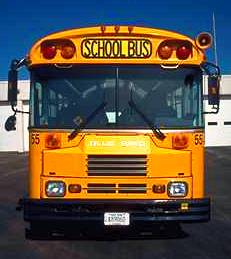13 July 1999
Most schoolchildren take part in bullying
by Kate Melville
 Most of us have had some experience with school bullies. But that experience may be more common than is widely believed. Results of a survey of midwestern middle school kids suggest that most students are bullies to some extent. But school officials, and probably parents, tend to underestimate the problem, because most bullying takes place out of their sight.
Most of us have had some experience with school bullies. But that experience may be more common than is widely believed. Results of a survey of midwestern middle school kids suggest that most students are bullies to some extent. But school officials, and probably parents, tend to underestimate the problem, because most bullying takes place out of their sight.
"We need to look at [bullying] as a group process, and more of a systematic thing that goes on in schools, that all kids contribute to in some ways," said study author Dr. Dorothy Espelage, of the University of Illinois, in Urbana-Champaign.
Espelage and colleagues asked 558 middle school children if they had name-called, teased, threatened or ridiculed their peers over the past month. The researchers did not tell the students that these behaviors were identified as bullying behaviors, since "it was assumed that students were more truthful about their behavior toward others when they were not given the value-laden term," they write.
The survey revealed that 80% of the students had engaged in bullying behavior in the past 30 days. Most reported low to moderate levels of the behavior, which Espelage says indicates the existence of a bullying continuum - rather than distinct " bully," "non-bully," and "victim" groups.
"So yes, there may be a certain student who does the most bullying, but what's happening, we see, is that a lot of kids report engaging in the same types of behaviors," she said.
Peer pressure pushes some kids to bully others, or to stand by without intervening, according to Espelage. For a subsequent study, she interviewed students, who told her that sometimes they just stand around and watch bullying, or they participate without wanting to, out of fear that the bully will turn on them.
Espelage acknowledged that some of the behaviors associated with bullying are part of being in middle school. But not when they are taken too far.
"To a certain extent, there is some kind of teasing and name-calling that's going to be there, but what happens is, in schools where there is not a climate of respect, then it becomes excessive. When you have an environment where it's tolerated, where teachers turn their heads, and administrators - when it's reported to them - don't follow through, then I think it becomes excessive," she said.
